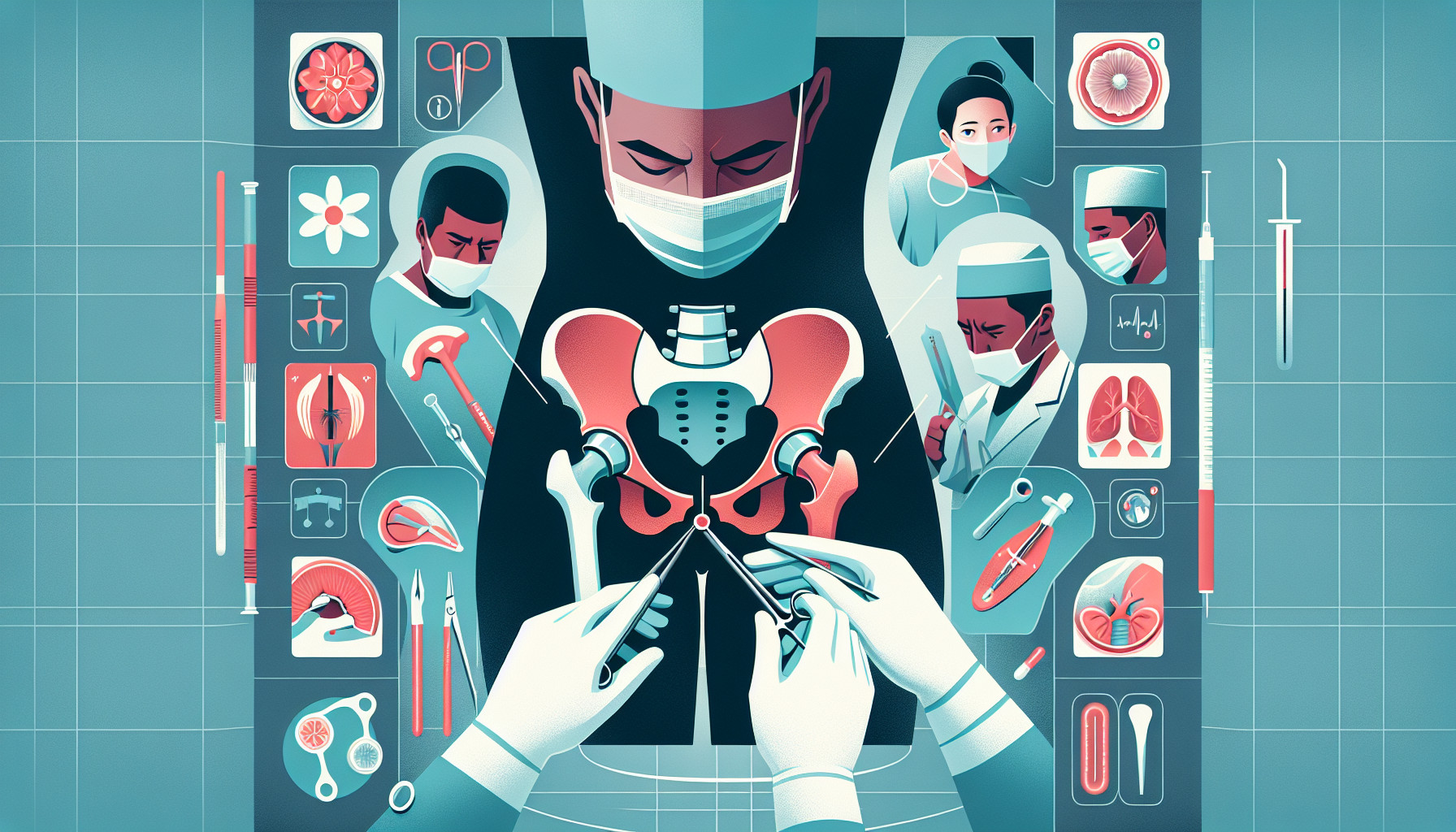Our Summary
This research paper discusses the difficulties in identifying and treating infections in patients who have undergone total hip replacements. The process of diagnosing such infections typically involves patient interviews, physical check-ups, blood tests, X-ray scans, and fluid extraction from the hip. The paper also outlines different treatment strategies which include cleaning the infected area and keeping the artificial hip, replacing the artificial hip in one or two stages, using antibiotics, or removing the artificial hip. The researchers also discuss how to decide on the best course of treatment and the potential outcomes of the different types of surgeries.
FAQs
- What are the diagnostic methods for assessing infected total hip replacements?
- What are the different management strategies for dealing with infected total hip replacements?
- What principles guide the surgical management and outcomes of revision surgery for infected total hip replacements?
Doctor’s Tip
One helpful tip a doctor might tell a patient about hip replacement is to follow the post-operative care instructions carefully, including physical therapy exercises, to ensure proper healing and optimal function of the new hip joint. It is important to listen to your body and not push yourself too hard during the recovery process to avoid any complications. It is also important to maintain a healthy lifestyle, including maintaining a healthy weight and staying active, to help prolong the lifespan of the hip replacement. Regular follow-up visits with your healthcare provider are essential to monitor the success of the surgery and address any concerns that may arise.
Suitable For
Patients who are typically recommended for hip replacement surgery include those with severe hip pain and stiffness that limits daily activities, failed previous non-surgical treatments such as physical therapy and medications, hip joint damage due to arthritis, fractures, or other conditions, and those who have not had success with other surgical interventions such as hip arthroscopy or osteotomy. Additionally, patients who are in good overall health and are motivated to participate in post-operative rehabilitation are also good candidates for hip replacement surgery.
Timeline
Before hip replacement surgery:
- Patient experiences chronic hip pain and limited mobility.
- Patient visits a orthopedic surgeon for consultation and evaluation.
- Orthopedic surgeon recommends hip replacement surgery as the best treatment option.
- Patient undergoes pre-operative tests and preparations for surgery, including blood tests and imaging studies.
After hip replacement surgery:
- Patient is admitted to the hospital for the surgery.
- Surgery is performed to remove the damaged hip joint and replace it with an artificial implant.
- Patient undergoes post-operative rehabilitation and physical therapy to regain strength and mobility.
- Patient is discharged from the hospital and continues with outpatient physical therapy and follow-up appointments with the orthopedic surgeon.
- Patient gradually experiences reduced pain and improved mobility as the hip heals and the artificial joint settles in place.
What to Ask Your Doctor
- How do I know if I need a hip replacement surgery?
- What are the risks and benefits of hip replacement surgery?
- What type of hip replacement procedure do you recommend for me?
- How long is the recovery process after hip replacement surgery?
- What kind of physical therapy or rehabilitation will I need after surgery?
- What are the potential complications or side effects of hip replacement surgery?
- How long can I expect the hip replacement to last?
- What steps can I take to reduce the risk of infection after surgery?
- What should I do if I suspect my hip replacement is infected?
- What are my options if my hip replacement does become infected?
Reference
Authors: Matar HE, Stritch P, Emms N. Journal: Br J Hosp Med (Lond). 2018 May 2;79(5):265-269. doi: 10.12968/hmed.2018.79.5.265. PMID: 29727227
